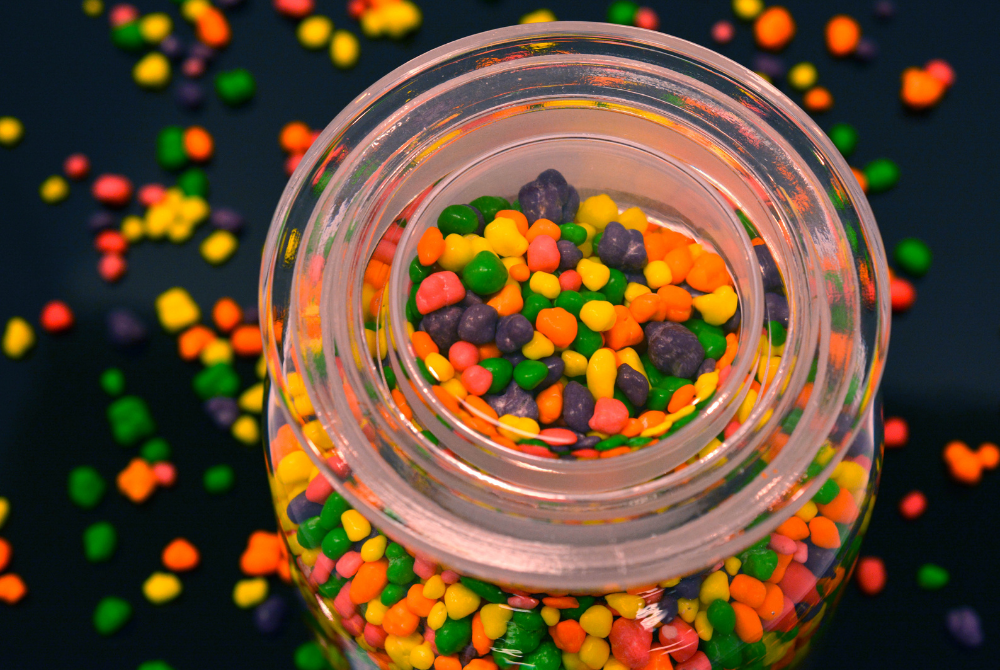Have you ever snacked on Ferrara Candy Company’s wares? Chances are high that you have – and if not, you have probably seen their bright, colorful packaging and candies in many a gas station and corner store.
To be fair, Ferrara Candy Co. is a distributor, not a candy factory run by a dreamy, mysterious owner like Willy Wonka.
You may better recognize some of the brands under Ferrara’s umbrella:
- Nerds, the rainbow, sour, pebble-like candy
- Trolli, a sweet and sour gummy candy, sold in various shapes and flavors
- Nerds Rope, a sort of combination of the two: A gummy rope coated in Nerds
Is the distinctive packaging of each of these candies coming to mind for you now?
If so, it is for good reason. Each candy brand that Ferrara distributes has built a recognizable product catering to children. And they’ve fortified considerable consumer goodwill and trust with the parents of those children. That is why they take trademark dilution so seriously.
Akimov and Top Five Wholesale: THC-Infused Candy
The disruption of consumer goodwill forms the foundation of a recent lawsuit against Akimov LLC/Top Five Wholesale, maker and distributor of THC-infused candy.
This cannabis candy maker has been using packaging that is almost identical to Nerds and Trolli. And they are facing some egregious trademark friction because of it.
The Harm Done
In Ferrara’s trademark lawsuit, they make nine claims for relief against a host of commercial and IP violations, including:
- Trade dress infringement – the packaging is too similar, to the point of confusing candy shoppers
- Counterfeit products – again, related to the almost identical packaging
- Unfair competition – Akimov is trading on the robustness of Ferrara’s established marks
- Trademark dilution by tarnishment and blurring – Akimov’s products both confuse consumers and diminish the goodwill Ferrar has built with them (since they may be accidentally marketing drug products to children)
- Trademark infringement – loss of sales and injury to the Ferrara brands due to Akimov’s unauthorized usage of registered marks
What About Parody?
This does bring up the question of parody. Many of you have seen fake versions of products that were meant to be a bit silly or an artistic statement. Are these protected from trademark claims?
The answer is: Sometimes. Proven parody actually can protect against trademark dilution – but not trademark infringement. So parody could not resolve this entire case, regardless.
Could Akimov make an argument that their products are a parody of children’s candy with an adult twist?
Let us consider the tenets of a parody that might get the court’s nod of approval:
- The parody harkens to the original mark
- The parody makes a distinction that it is not the original mark
- The parody makes clear that its message is humorous, satirical, or otherwise commentary on the original
If these dimensions are not crystal clear, a parody defense will likely collapse.
Effective Stoppage
Ferrara has asked for the courts to order destruction of counterfeit product, cessation of sales, and over $6 million in trademark infringement damages. Although the case is not settled yet, as of now, Top Five has stopped selling any look-alike products on its website. We shall see if this action is enough – or too little too late to save their brand from a financially draining lawsuit loss.
Be careful how you package and market your products, these types of lawsuits are expensive to defend.
